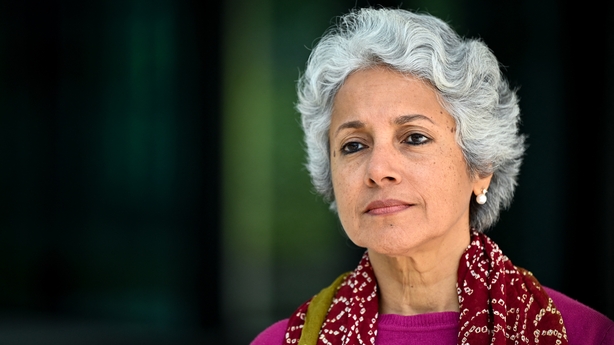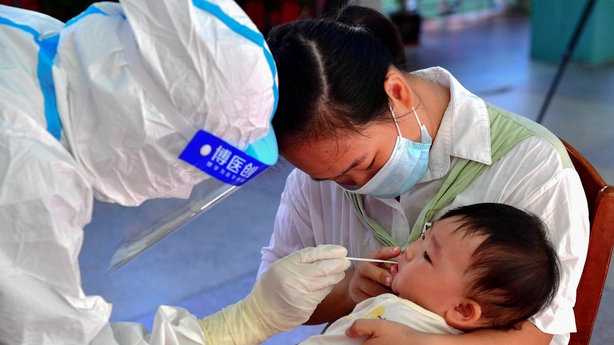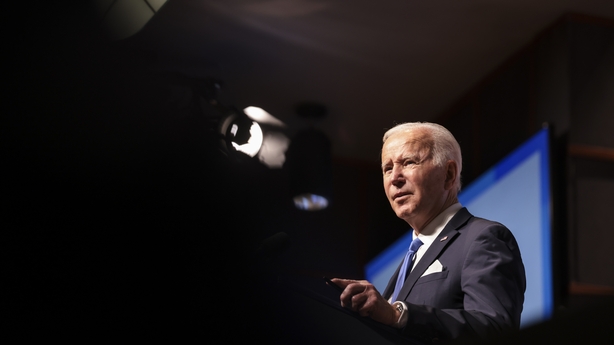The World Health Organization's (WHO) chief scientist has urged people not to panic over the emergence of the Omicron coronavirus variant, adding it was too early to say if Covid-19 vaccines would have to be modified to fight it.
Dr Soumya Swaminathan said that the new coronavirus variant Omicron appeared to be very transmissible, but that it was impossible to predict if Omicron would become the dominant strain.
Omicron has been detected in 38 countries but there are no reported deaths so far from the new Covid-19 variant, WHO confirmed.
A spokesman told reporters that the UN health agency had "not seen reports of Omicron-related deaths yet".
Maria Van Kerkhove, the WHO's technical lead on Covid-19, said Omicron had been reported in 38 countries, with the variant now spread across all six WHO regions.
The WHO has said it will take several weeks to determine how infectious Omicron is, and to assess how vaccines, tests and treatments hold up against it.
But it insisted that scientists were well on top of it and would be able to produce those answers soon.
"We're going to get the answers that everybody out there needs," WHO emergencies director Michael Ryan said. "We need to trust in the science now and be patient and not be fearful."
The WHO has urged countries to boost healthcare capacity and vaccinate their people to fight a surge in Covid-19 cases driven by the Omicron variant, saying travel curbs could buy time but alone were not the answer.
Omicron has gained a foothold in Asia, Africa, the Americas, the Middle East and Europe and has reached seven of the nine provinces of South Africa, where it was first identified.
Many governments have tightened travel rules to keep the variant out.
Dr Swaminathan said that the right response was to be prepared, cautious and not panic.

"How worried should we be? We need to be prepared and cautious, not panic, because we're in a different situation to a year ago," she said.
"Delta accounts for 99% of infections around the world. This variant would have to be more transmissible to out-compete and become dominant worldwide. It is possible, but it's not possible to predict."
Australia became the latest country to report community transmission of the new variant, a day after it was found in five US states.
WHO spokesman Christian Lindmeier told a UN briefing in Geneva earlier that vaccine makers should prepare for the likelihood of adjusting their products.
Ugur Sahin, CEO of Germany's BioNTech, which makes a COVID vaccine with Pfizer, said the company should be able to adapt the shots relatively quickly.
Dr Sahin also said current vaccines should continue to provide protection against severe disease, despite mutations.
Takeshi Kasai, the WHO's western Pacific director, told a media briefing that vaccines were the solution and that border controls could only buy time.
"People should not only rely on border measures. What is most important is to prepare for these variants with potential high transmissibility.
"So far the information available suggests we don't have to change our approach."
Dr Kasai urged countries to fully vaccinate vulnerable groups and stick to preventive measures such as mask wearing and social distancing.

Almost 264 million people have been reported to be infected by Covid-19 since it was first detected in central China in late 2019.
Vaccination rates vary from country to country but there are worrying gaps in poorer countries.
Indonesia, the world's fourth most populous country and once Asia's Covid-19 epicentre, has fully inoculated only about 35% of its population.
Australia's chief medical officer, Paul Kelly, said Omicron was likely to become the dominant variant globally within months, but at this stage there was no evidence it was any more dangerous than Delta.
In the US, the Biden administration announced measures to guard against the virus spreading.

From Monday, international air travellers arriving in the US will have to have obtained a negative Covid-19 test within a day of travel.
"We're going to fight this variant with science and speed, not chaos and confusion," President Joe Biden said.
Fewer than 60% of the US population have been fully vaccinated, one of the lowest rates among wealthy nations.
Aside from wreaking havoc in the travel industry, the clampdown has pounded financial markets and undermined major economies just as they were beginning to recover from the lockdowns triggered by Delta.
Belgium has decided to close primary schools a week early while Germany said it would bar the unvaccinated from all but essential businesses.

